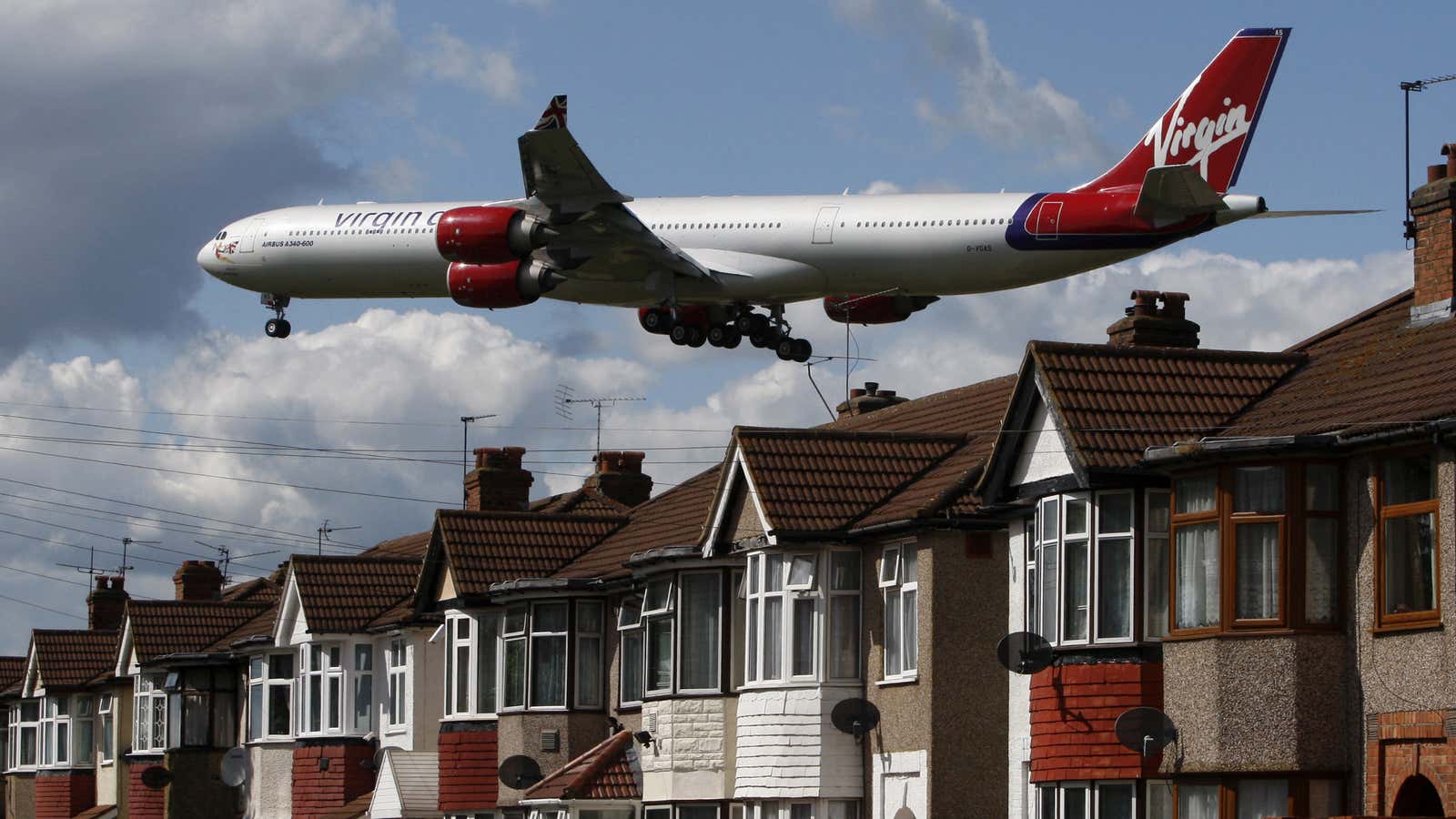Britain’s telecoms regulator, Ofcom, has proposed allowing airplanes and ships access to radio spectrum that would exponentially increase the speed of the internet connections they offer on the move. Ofcom is soliciting “stakeholder feedback” on the proposal, which envisions mounting earth stations—receiving equipment used to communicate with satellites—on airplanes, ships and possibly also trains and buses. It hopes to start giving out licenses (pdf) by early next year.
This would be welcome. Few British carriers offer internet while in the air. British Airways allows you to use your phone’s internet connection, but only on its all-business-class service between London and New York, and it’s treated as international roaming, which is typically extortionately expensive. Virgin offers in-flight Wi-Fi on all its services—in the US. Ferries between the UK and France or the Netherlands offer Wi-Fi, but the connection is abysmal. And only the occasional service on very few train companies comes with free—or even paid—Wi-Fi.
Indeed, for a first-world country, finding internet outside the home or office in Britain can be frustrating. Free Wi-Fi is vanishingly rare in cafes and shops (contrast with Russia, where it is the norm); mobile broadband is but a dream in the bucolic British countryside (contrast with India, where even sparsely-populated parts of the country are connected); and a project to bring broadband to rural Britain is running two years behind schedule, according to the National Audit Office.
Airlines may escape the fate of Britain’s villages. There are no public subsidies involved, as with its rural broadband project, and the first airline to make high-speed internet part of its services will surely reap the benefits from business flyers. But if Wi-Fi in public spaces on the ground is any guide, expect the costs to be on par with cruising altitude.
There is also the slight problem of whether the service will be available outside Britain’s airspace and territorial waters. Ofcom’s remit extends only to Britain. The Financial Times reports (paywall) that the regulator is in talks with its European counterparts to “establish a greater regional use of this technology” but for the moment, it is unclear whether routes outside British airspace will offer the service. Ofcom’s wording is vague: “The operation of WT [wireless telegraphy] equipment within the airspace or territorial sea of other countries will be subject to the relevant regulations of those countries.” (We have written to Ofcom for clarification.) All of which leaves Britain with a wonderful new technology that will be too expensive for most people and probably restricted to short-haul flights.
